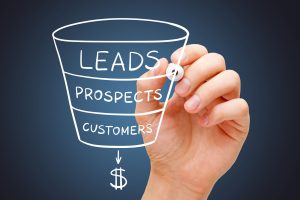What Are Growth-Driven Designs and Why Do They Matter?
Growth-Driven Design (GDD) represents a revolutionary approach to web design and development that emphasizes flexibility, data-driven decisions, and continuous improvement. This modern methodology stands in stark contrast to traditional web design practices, which often focus on launching a perfect website with limited follow-up iterations. GDD prioritizes creating a dynamic digital presence that evolves based on user behavior, market trends, and business goals. By leveraging actionable data and user insights, businesses can ensure that their websites are not only visually appealing but also highly functional and performance-driven. This approach fosters sustained growth in sales, enhances user engagement, and boosts overall website performance, making it a critical strategy for businesses looking to maintain a competitive edge in the digital landscape.
Traditional web design poses several challenges. These include significant upfront costs, lengthy timelines for development, and a static framework that becomes obsolete as user expectations and technologies evolve. Often, businesses invest substantial resources into a complete overhaul of their websites every few years, only to find that the results fail to meet their objectives or address current market needs. Growth-Driven Design addresses these issues by adopting a flexible and iterative process. Instead of waiting years to implement changes, businesses can refine their websites incrementally, applying real-world data to inform every decision. This ensures that the website remains relevant, user-centric, and aligned with business goals. Moreover, GDD’s emphasis on adaptability allows businesses to respond quickly to emerging trends, shifting consumer preferences, and new technological advancements, ensuring their digital presence remains a valuable asset over time.
Stages of Growth-Driven Design
1. Strategy
The strategy phase is the foundation of Growth-Driven Design, setting the stage for all future improvements and ensuring that every decision is grounded in data and user insights. During this stage, businesses and design teams collaborate to gain a comprehensive understanding of the target audience, their needs, and their behaviors. This process involves defining clear, measurable objectives that align with broader business goals, such as increasing conversions, improving user engagement, or driving traffic. Detailed user personas are developed to represent the target audience, guiding design decisions and ensuring that the website resonates with its intended users. A navigation map is created to outline the user journey, making it intuitive and seamless. In-depth research into consumer behavior provides valuable insights into what drives user actions, preferences, and pain points. Additionally, brainstorming sessions are conducted to generate innovative ideas for website features and components that can address these insights. Hypotheses are formulated for testing various design elements, enabling teams to experiment and refine based on real-world results. This comprehensive approach ensures that the website is not only aesthetically pleasing but also strategically designed to meet user needs and business objectives.
2. Initial Launch
The initial launch phase focuses on creating a functional “launchpad” website that serves as the foundation for ongoing improvements. Unlike traditional web design approaches, which aim for a polished and complete product at launch, GDD’s launchpad site is intentionally lean, prioritizing speed and functionality. This approach allows businesses to begin gathering user data and feedback immediately, laying the groundwork for data-driven enhancements. Key steps in this phase include identifying and prioritizing features that will have the greatest impact on the business, such as call-to-action buttons, product pages, or contact forms. Wireframes are developed to provide a visual blueprint of the site’s layout, ensuring that it is intuitive and user-friendly. Content migration involves transferring existing materials to the new platform while optimizing them for performance and user engagement. Core design elements, such as typography, color schemes, and imagery, are carefully crafted to reflect the brand’s identity and values. Rigorous quality assurance testing is conducted to identify and resolve any issues before the site goes live. Once the launchpad site is complete, it is deployed to the public, allowing businesses to start collecting valuable user data. This data serves as the basis for future iterations, ensuring that the website evolves in response to real-world insights and remains aligned with business goals.
3. Continuous Improvement
Continuous improvement is the cornerstone of Growth-Driven Design, enabling businesses to refine and optimize their websites based on ongoing user feedback and analytics. This phase is characterized by a commitment to making iterative updates that enhance user experience, drive engagement, and achieve business objectives. Tools such as heatmaps, A/B testing, and user surveys are employed to gather data on how visitors interact with the website. This data provides valuable insights into user behavior, preferences, and pain points, allowing design teams to identify areas for improvement. Website elements are prioritized based on their impact on user experience and business outcomes, ensuring that resources are allocated effectively. Regular performance reports are generated to track progress and measure the effectiveness of design changes. Collaboration between design, sales, and marketing teams ensures that the website aligns with broader business strategies, creating a cohesive and impactful digital presence. User feedback is continuously integrated into design decisions, fostering a user-centric approach that enhances satisfaction and loyalty. By adopting this iterative process, businesses can stay ahead of market trends, adapt to changing user needs, and maintain a website that delivers consistent value and results.
Benefits of Growth-Driven Design
Growth-Driven Design offers a wide range of benefits that make it a highly effective approach for modern businesses. These advantages include reduced risk, enhanced collaboration, and cost efficiency. One of the primary benefits of GDD is its ability to minimize risk. Traditional web design involves significant upfront investment and the potential for failure if the final product does not meet user expectations or business objectives. In contrast, GDD’s iterative nature allows businesses to launch quickly and make data-driven adjustments over time, reducing uncertainty and ensuring that the website remains relevant and effective. Another key benefit is the enhanced collaboration it fosters between design, sales, and marketing teams. By leveraging user insights and aligning design decisions with business goals, GDD creates a unified approach that supports lead generation, conversion, and overall brand success. Cost efficiency is another major advantage of GDD. Traditional web design often requires costly overhauls every few years, leading to significant disruptions and expenses. GDD’s retainer model spreads costs over time, enabling businesses to benefit from continuous improvements without the need for frequent, expensive redesigns. This approach maximizes ROI by ensuring that the website evolves in response to user needs, market trends, and business priorities. Overall, Growth-Driven Design is a powerful strategy that enables businesses to create dynamic, user-centric websites that drive growth and deliver long-term value.
Why Partner With Evolved Designs?
For many eCommerce businesses, achieving consistent growth and meeting customer expectations can be a complex and challenging endeavor. At Evolved Designs, we specialize in transforming digital storefronts through strategic Growth-Driven Design principles. Our approach is tailored to address the unique needs and goals of each client, ensuring that their websites are not only visually appealing but also highly functional and performance-driven. Our services include boosting traffic through advanced SEO techniques and targeted keyword strategies, improving user experience to drive higher conversion rates, and streamlining operational processes such as payment systems, checkout flows, and shipping integrations. Additionally, we work to align website design with overarching sales and marketing objectives, creating a cohesive and impactful digital presence that supports business growth. Our team of experts stays ahead of industry trends and leverages the latest tools and technologies to deliver innovative solutions that position our clients for long-term success. Whether you’re looking to revamp your eStore, build a scalable website from the ground up, or optimize your existing digital presence, Evolved Designs is here to help. We are committed to delivering results that exceed expectations and drive meaningful growth for your business. Contact us today: Email support@evolveddesigns.net or call (817) 918-0436 for a complimentary consultation with one of our eCommerce marketing experts!


